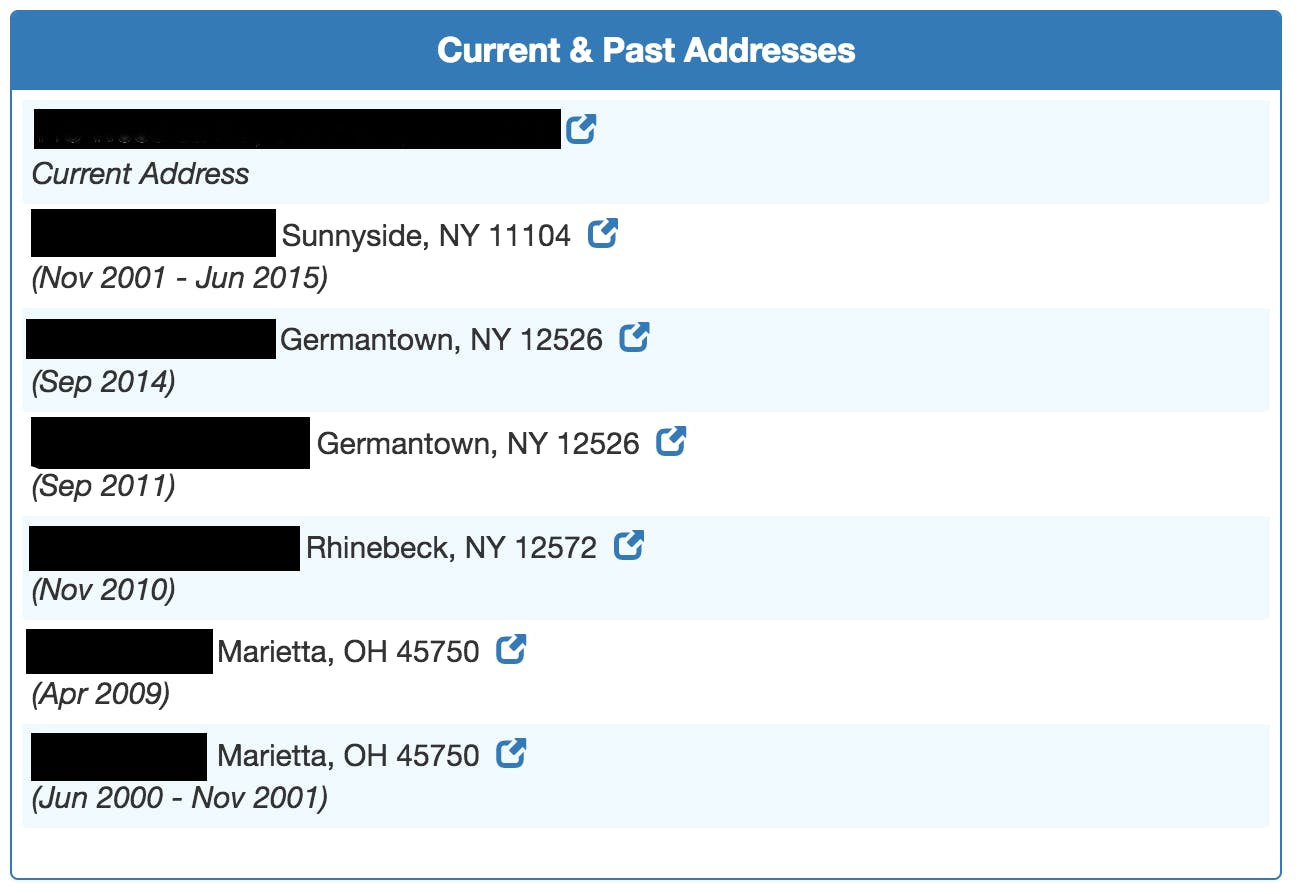It all started with a text from her sister.
“She’s a child advocate with a county-level organization, so she checks her internet footprint from time to time,” Anna Brittain, a 30-year-old young-adult fiction writer from Alabama, told the Daily Dot in an email. “My children came up under her listing as ‘possible associates,’ so she contacted me to let me know what she found. (My kids are 3 and 5, by the way!)”
The listing Brittain’s sister alerted her to comes from a genealogy website known as Family Tree Now. Like many such websites, Family Tree Now allows you to delve into your ancestry. But one thing makes this site stand out from the others: Anyone can use it to easily uncover some of your most sensitive personal information within seconds.
Launched in 2014, Family Tree Now boasts “one of the largest collections of genealogy records anywhere.” Rather than focusing on a user’s ancestry, however, searches on the site feature a wealth of information on living people, including names, birthdates, complete home address history, and the names of family members and friends. The personal information of relatives and friends are also readily available with a single click.
The information is provided for free and without limitation, and it raises serious privacy concerns, exposing anyone included on the site to potential doxing, harassment, and other forms of victimization. And you’re more than likely included by default, and your information will remain on the site unless you opt out.
It is also completely legal—in fact, it’s protected by the U.S. Constitution.
“I don’t want this to be taken callously,” says Lee Tien, a staff attorney with the Electronic Frontier Foundation. “But that is part of the cost of living in a society with the First Amendment.”
Family Tree Now did not respond to our request for comment, but it appears as if much of the information on the site—things like name, age, and home address—comes from public records. This type of information can be very revealing, just as being listed in a phone book can be revealing, but it is not protected information. Furthermore, Family Tree Now is not unique; data brokers like Experian, Spokeo, and Intelius also collect this type of data. And then there’s everything Facebook knows about you.
“We’re stuck in a world where a great deal of our [family and personal information] is in the public record,” Tien says.
What makes Family Tree Now particularly worrying is the ease with which anyone can obtain your personal information, particularly in an age when social media harassment so often pushes the boundaries of legality. Although it provides a privacy policy and terms of use that address some concerns, at least as far as the company is concerned, the site could still prove hazardous for potential victims—particularly for women who speak their minds online.
“I am very vocal politically. I’m a defiant, hard left-leaning woman, and I’m prone to scuffle on social media over social justice issues,” says Brittain. “Doxing, stalking, and online abuse have been around almost as long as the internet has been in existence, but the election has emboldened the worst kind of bigoted online trolls, and it’s become clear that using our voices comes with the cost of a target on our backs.”
Tien, who has a wife and two young adult daughters, agrees that a service like Family Tree Now could be particularly problematic for women.
“Women in particular in this society are right to be very concerned about [having their personal information freely available],” says Tien. “I don’t want to understate those concerns at all. But what I am saying is, this is something that in many ways is sort of a smaller reflection of the situation that already exists with respect to a lot of data that we have volunteered in some way … or that our transactions reveal.”
A search for my own personal information first returned a list of people with my same name. Couts is not a particularly common surname, so someone searching for me only had seven people to sift through to find me. Someone with a more common name will have a greater benefit of privacy unless the person searching for your records has other personal details with which they can refine their search. Searches for friends, family members, and co-workers also turned up accurate personal information (although inaccurate information was also mixed in).
Clicking through my name returned my birthday; my age; the names of my brother, sister, and parents; my wife’s name; my sister-in-law and brother-in-law’s names; and the names of a number of friends and other relatives. It also included my current address and the address of every place I’ve lived since 2000. Similar amounts of information were available on all my family members and other associates.
The site does allow you to have your information removed from its database. To do so, click this opt-out link, search for your name, select yourself, and click the red “opt out” button at the top of the page. Some users reported an error code when attempting to opt out. If that happens to you, try again or try doing so on a laptop or PC rather than on your mobile device, a tactic that some users said worked for them.
The opt-out process can take up to 48 hours, the company explains on its site, but my data was gone in less than a day.



